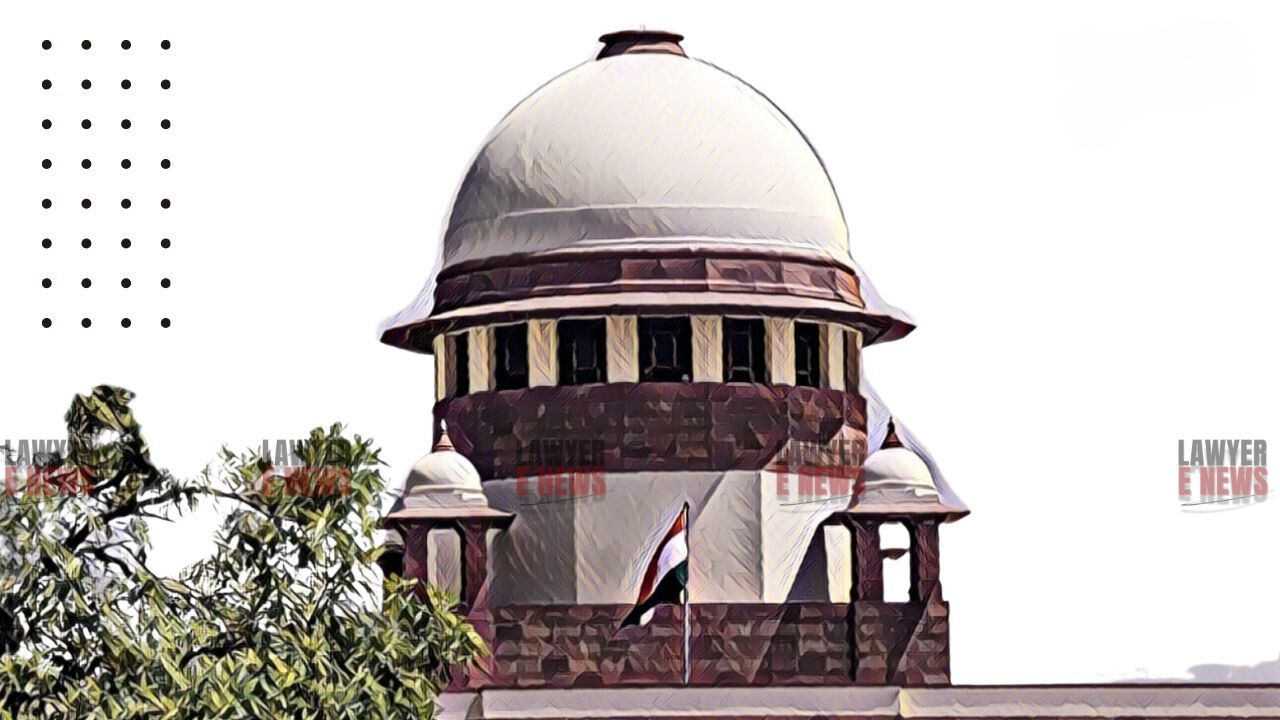-
by Admin
15 February 2026 5:35 AM



Supreme Court of India dismissed an appeal by the Union of India, confirming the eligibility of Saroj Devi, the widow of Naik Inderjeet Singh, for Liberalized Family Pension (LFP). The case centered on the classification of a soldier’s death as a battle casualty, which impacts the pension benefits granted to the family.
The respondent's husband, Naik Inderjeet Singh, was serving in the Indian Army and stationed near the Line of Control (LoC) in Jammu and Kashmir. While on duty during an Area Domination Patrol on January 23, 2013, Singh developed breathlessness due to extreme climatic conditions. Despite efforts to evacuate him, he succumbed to cardiopulmonary arrest.
Initially, his death was classified as a battle casualty, but this was later changed to a physical casualty, making his family ineligible for LFP. Saroj Devi filed an application before the Armed Forces Tribunal, which ruled in her favor. The Union of India appealed the decision in the Supreme Court.
Whether the death of Naik Inderjeet Singh in extreme climatic conditions near the LoC qualifies as a "battle casualty" under the Liberalized Pension Scheme (2001), specifically under Category E(f), which includes deaths arising from "war-like situations."
Whether the classification of Singh's death as a "physical casualty" instead of a "battle casualty" aligns with the rules set out in Army Order 1 of 2003.
The Court reviewed Appendix A of Army Order 1 of 2003, which defines battle casualties. Clause 1(g) explicitly includes casualties caused by natural calamities or illness due to climatic conditions while operating near the International Border or LoC. Singh’s death was attributed to such conditions, and he was on duty near the LoC as part of Operation Rakshak.
“The casualty caused by illness due to climatic conditions is covered by Clause 1(g). The deceased was a victim of illness caused by extreme climatic conditions. Therefore, his death qualifies as a battle casualty.”
The Court emphasized that Category E(f) of the 2001 Liberalized Pension Scheme includes deaths resulting from war-like situations near the LoC. Singh’s patrol duties in extreme conditions and his inability to receive timely medical evacuation due to inclement weather placed his death within this category.
“The death has occurred as a result of a war-like situation prevailing near the LoC. Therefore, Clause (f) of Category E applies.”
The Court criticized the appellants for dragging the widow into litigation instead of adopting a sympathetic approach.
“The decision-making authority ought to have been more considerate to the widow of a deceased soldier who died in harness.”
The Court dismissed the Union’s reliance on Kanchan Dua v. Union of India and Radhika Devi v. Union of India, noting that those cases involved deaths in non-operational circumstances, which were distinct from Singh’s situation.
The Supreme Court dismissed the appeal and upheld the Tribunal's ruling, directing the Union to:
Implement the Tribunal’s directive to provide LFP and an ex-gratia lump sum within three months.
Award ₹50,000 as costs to Saroj Devi for unnecessary litigation, payable within two months.
This judgment reaffirms the Supreme Court's commitment to honoring the sacrifices of soldiers and their families. It sets a precedent for recognizing deaths due to extreme operational conditions as battle casualties, ensuring deserving families receive their rightful benefits.
Date of Decision: December 3, 2024
